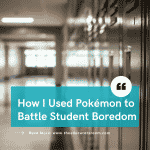Overview:
Explicit phonics instruction is critical when learning to read, but word recognition is not the only component that creates skilled readers.
Essential Components
In part 1 of my series on effective literacy, I discussed the Science of Reading, the role of the brain when learning to read, and the importance of explicit phonics instruction when teaching reading. Explicit phonics instruction is critical when learning to read, but word recognition is not the only component that creates skilled readers.
According to EdReports, an organization that evaluates curricula, “The National Reading Panel identified five essential components every child must master to be a competent reader: phonemic awareness, phonics, fluency, vocabulary, and comprehension. A quality reading program is well implemented by teaching the five components systematically, explicitly, and with planned connections to the others. The science behind teaching students to read is grounded in research such as The Simple View of Reading (Decoding (D) x Language Comprehension (LC) = Reading Comprehension (RC)) and Scarborough’s Reading Rope, which support critical components of a comprehensive reading program.”
Fluency and Comprehension
Comprehension is a vital component of becoming a skilled reader. However, comprehension is dependent on fluency. When new readers can decode with automaticity, they naturally develop fluency. Fluency is directly associated with comprehension. According to Dr. J. Samuels, a professor well known for his research on fluency, a reader must be able to decode instantly to enhance reading comprehension. Once readers achieve fluency, they can focus on meaning. True comprehension depends on a child’s ability to connect his or her prior knowledge to the words and concepts that are reading.
Activating Prior Knowledge
Eliciting prior knowledge of a specific topic has always been standard practice for teachers, and it is crucial for acquiring reading comprehension. Enhancing student interest and trying to gauge what students already know is a great way to begin every lesson. Warming up the brain is a great strategy all teachers use when introducing a new concept. It encourages students to stop and think about the topic or task at hand. Teachers can use tools such as incorporating anticipatory guides, KWL charts, graphic organizers, and concept maps to activate prior knowledge. Or they can activate prior knowledge by simply starting a conversation. This method allows all students to have a voice and actively participate in their learning. Teachers can use any of these strategies during whole-class instruction or small-group guided reading lessons.
However, prior knowledge is very personal and unique to each individual. Students have their own experiences in life, and these experiences develop their schema, which allows them to understand the world around them. For example, a student who plays a musical instrument will have more knowledge about music vocabulary and theory than a student who has no musical background. The same applies to students who play sports. Through practice, participation, and real-world experiences, they deepen their sports knowledge.
Our classrooms today are very diverse, and our students come to school every day with their distinct knowledge base. Students from Yemen, Albania, China, Japan, Puerto Rico, and the Dominican Republic know things that students born in America do not have and vice versa. Because of this range in knowledge, activating prior knowledge and frontloading vocabulary is critical before a lesson, but oftentimes it isn’t enough. So how do teachers make up for this imbalance of knowledge?
Building Academic Knowledge
We can start by reading Natalie Wexler’s book, The Knowledge Gap: The Hidden Cause of America’s Broken Education System. Ms. Wexler states, “Comprehension strategies can be useful when delivered in limited doses and connected to specific content. But cognitive science has shown that the primary factor in whether you can understand what you read is whether you possess relevant background knowledge and vocabulary.” Teaching comprehension skills is not enough.
According to Wexler, developing knowledge of the world through teaching history, science, and the arts can bridge the knowledge gap. Ms. Wexler further suggests that teachers build knowledge through a content-rich curriculum like “The Core Knowledge Sequence.” Promoting subjects that build foundational knowledge will enhance a child’s knowledge base throughout their academic years. Encouraging students to make connections before a lesson will allow them to synthesize old and new information, resulting in a deeper understanding of the concepts being taught.
Over the past few years, school districts across the United States have realized knowledge’s importance and adopted curriculums that focus on building knowledge. Content knowledge is vital for all students to achieve comprehension, and building it should be the number one priority for all teachers. The Science of Reading is a strong proponent of teaching explicit phonics, as well as promoting fluency and vocabulary, and building content knowledge for comprehension.








Wow, this is a treasure trove of valuable information! I really appreciate the depth and clarity of the content. Each point is well-explained, making it easy to grasp the concepts.